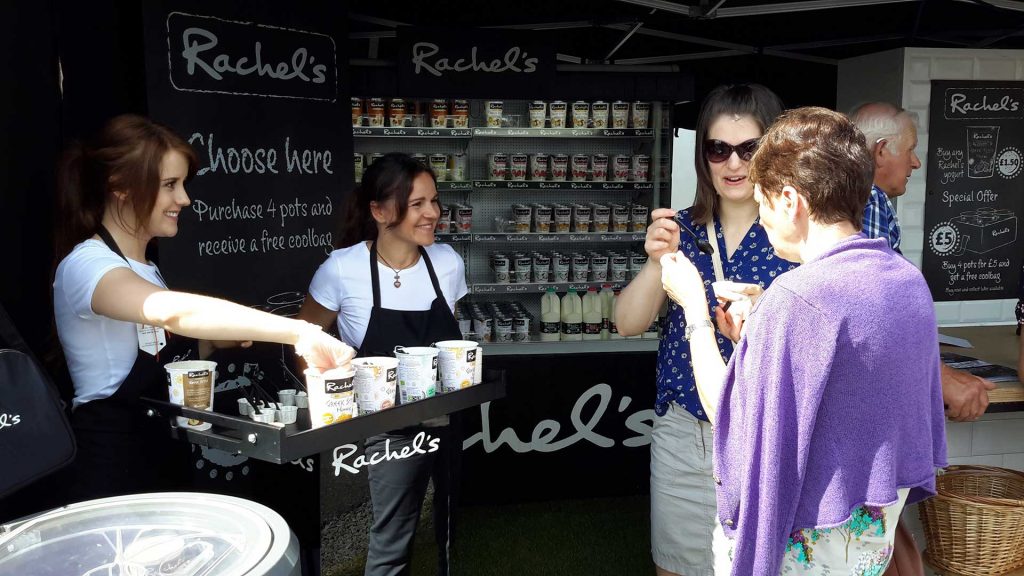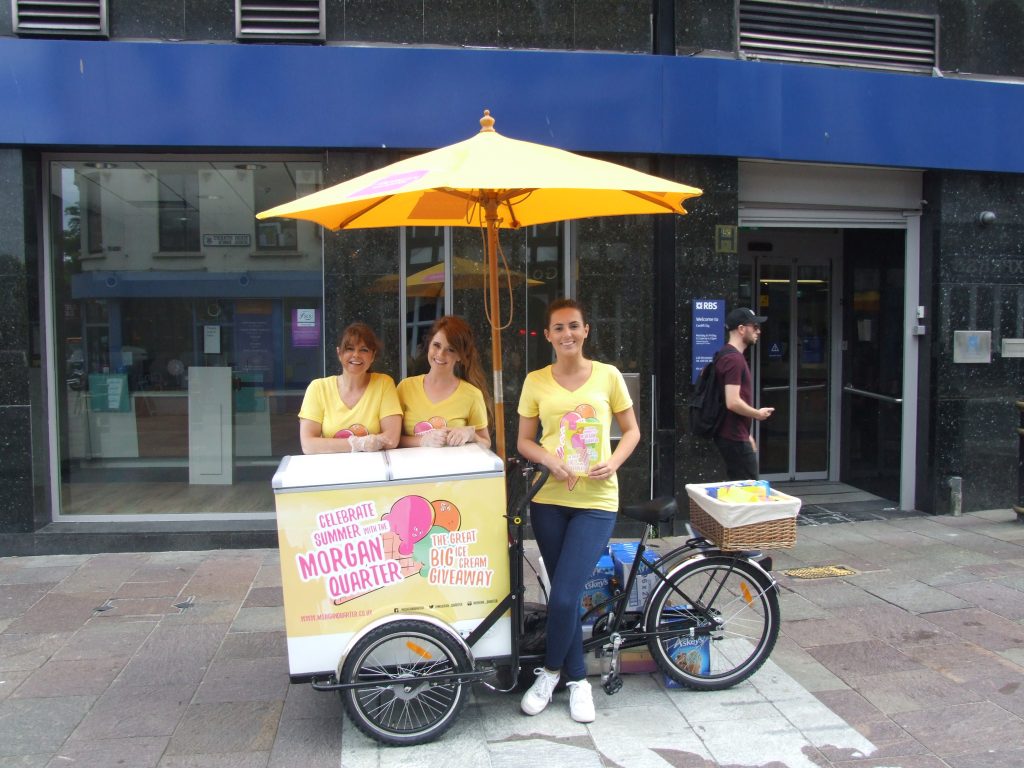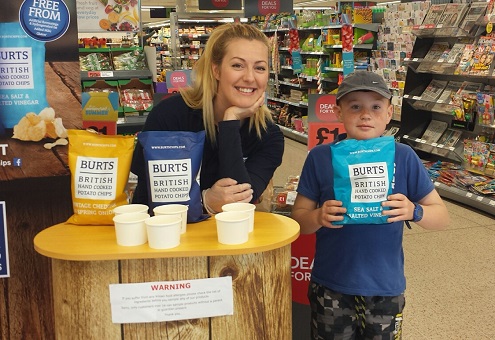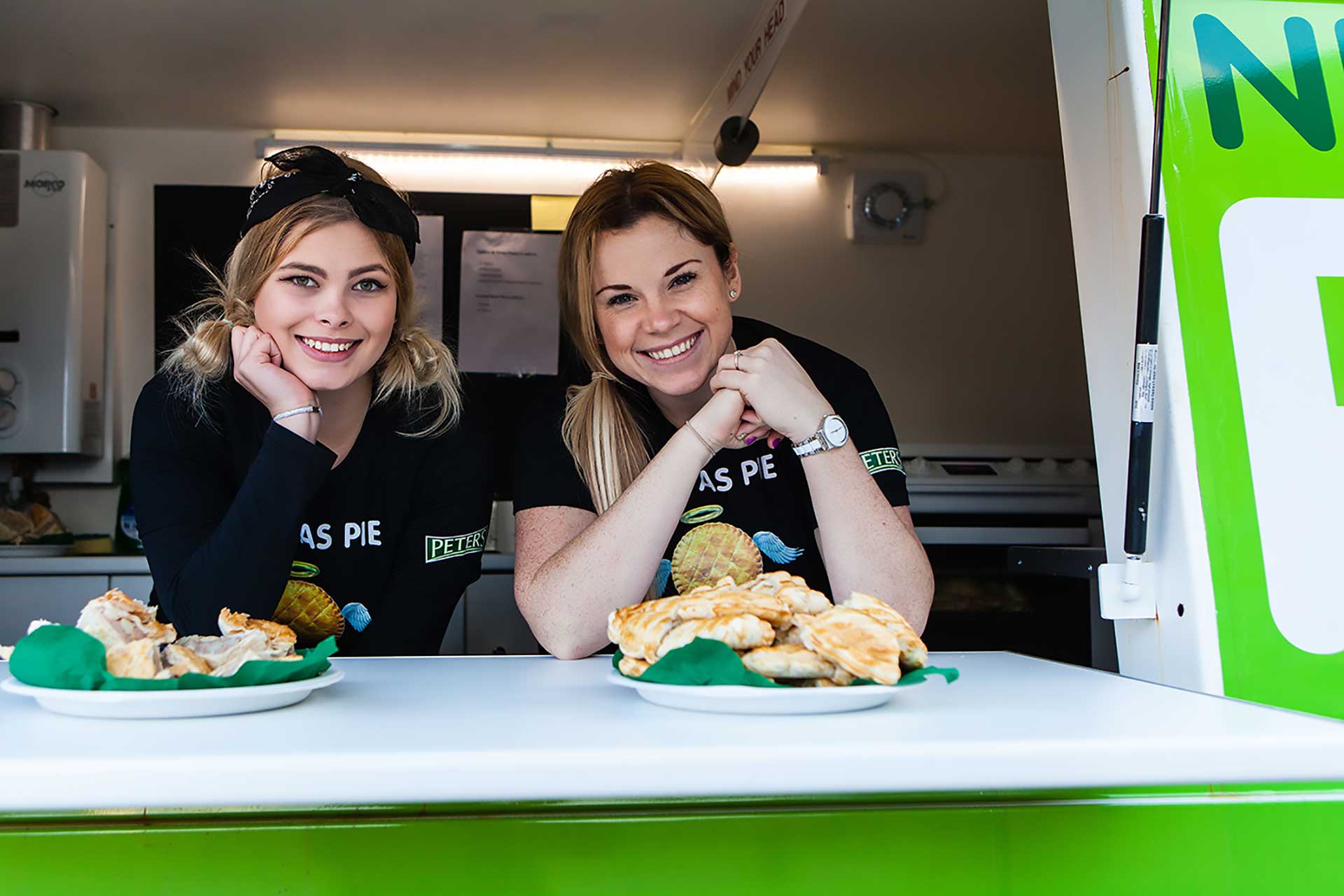The Food Industry: How to Achieve Experiential Marketing Success
Experiential marketing has become a buzz phrase in 2016, with more and more firms seeing returns from the events, it is unsurprising that more brands are trying their hand at the medium. With a 9.9% increase in experiential spend according to IPA’s Q3 Bellwether report, it’s safe to say experiential marketing is here to stay.
Face to face marketing has always been an active part of the food industry, from the local butcher building relationships within the community, to the modern day sampling campaigns. And with the big brands buying in to the trend; Hovis upping their experiential spending, hiring agency Hot Pickle after great experiential success this year; it’s safe to say the industry will soon be following suit.
The results speak for themselves, sampling, the primary method of experiential marketing in the industry; gives value to consumers, increasing the likelihood of reciprocity and brand loyalty. It is proven to be effective at driving sales:
When asked by Sampling Advisors “What would induce you to try a new product or brand?”, 73% of consumers stated “product sample” while only 25% answered “television ad”
But most importantly, it is very difficult to convince someone to become a regular consumer of your food product without them trying it first. However, we’re not here to discuss the benefits of sampling, partly because we’ve done that before, and partly because this article is about highlighting the 5 key factors which determine the success of most experiential marketing campaigns in the food industry.
5 Factors for Experiential Marketing Success
The Staff
The promotional staff you hire can be the making or breaking of your event. In order to strike a chord with your intended consumer base, it is important to have staff they identify with. Including us, there are hundreds of companies out there who specialise in staffing promotional events. However, if you chose to staff your events in house there are several key factors to bear in mind:
Experience:
Typically food industry experiential campaigns take place across multiple locations and require a fair amount of organisation on the part of the brand ambassador. An experienced staff member will know the score, where and when to arrive, who to speak to, the prime location for the stand and how best to serve the product.
Demographic:
Ensuring your consumers identify with your promotional staff is key. A grandmotherly 80 year old would be perfect for a hot chocolate brand, whilst perhaps less appropriate for an isotonic sports drink.
Personality:
Again, same story as demographic. A brand ambassador who is more knowledgeable than extraverted would be more suited to a sample stand which has an inherent draw. On the other hand, if you’re holding an immersive experience you require a personality who will promote your installation, drawing in crowds.
Certification:
Brand ambassadors need to have the appropriate food hygiene qualification to prepare food at your events. Ensuring staff have the correct certification is vital. Staying on top of this is imperative to avoiding potential legal ramifications.
Logistics
As with staffing, there are hundreds of experiential support companies who can help with the logistics of your campaigns (including us again…). Logistics are of supreme importance, if your campaign is disorganised, it won’t run smoothly, meaning it’s likely you won’t get the ROI you were hoping for. We’ve come up with a few key areas where being organised is imperative:
Permissions:
Always ensure your brand has the correct permissions to work in the areas you’ve targeted. These permissions must be arranged in advance with the appropriate department of the store or mall you are planning to operate in. If you’re hitting the streets then it’s the council you have to talk to.
Stock:
Only really applicable for campaigns in areas where there is an immediate opportunity for sales. Ring ahead to check that there is a sufficient level of stock available, you don’t want your potential customers put off or annoyed because they can’t find your products on the shelves.
Stand:
The stand is a key factor in any experiential campaign, whether it’s a small sampling stand or a room sized installation. Staying on top of suppliers, ensures your stand is ready to roll on the day, complete with graphics, banners and other extras.
Coordinating staff:
Be sure to fully brief staff beforehand, to the extent that they know exactly how their day will go before they live it. By decreasing the knowledge discrepancy between you and your staff, you decrease the likelihood of a problem on the day. It also means staff know what they’re selling, what the USPs are and how exactly you want your product served, ensuring the campaign stays on message.

Staying true to the brand
In experiential marketing, running the RIGHT event for YOUR brand is critical. This involves researching and collaborating with the right influencers, choosing the right location, operating a campaign which falls in line with your brand’s image.
The food industry is fortunate in that the senses of taste and smell are already engaged, therefore finding the correct foil to compliment this inherent engagement is important, as it will help ingrain your brand in the minds of consumers.

Integrating events into the marketing plan
A holistic approach is, these days, universally accepted as an effective way to coordinate marketing efforts. Therefore, it is crucial that brands are able to integrate events into their overall plan, rather than having them as a separate entity.
Promoting events through social coverage, press releases and direct channels (email, post, leaflets etc.) ensures your event is publicised and consumers know it’s happening. Likewise, during and after the event, stay active on digital channels, promoting user-generated content and interacting with the community through competitions and discussions. Your customers will appreciate the effort, which increases the likelihood of creating brand evangelists and therefore valuable earned promotion.

Reporting
Typically, campaigns in the food industry involve lots of free product distribution. As a result, it is important to keep track of the return you see because of this. Having an effective reporting procedure is important not only to calculate the ROI of current campaigns, but the data received allows you to fine tune future campaigns to better serve consumers. Therefore, keeping track of samples distributed, interactions, consumer feedback and social responses all help build a picture of the what went well (and what didn’t) at the event. The nature of the food industry is entirely subjective, there is no objective ‘best taste’. Thus breaking down the data and incorporating findings into future campaigns is imperative to staying relevant and keeping up with changing preferences.
If you’re looking for staffing or experiential marketing services, contact us today.


